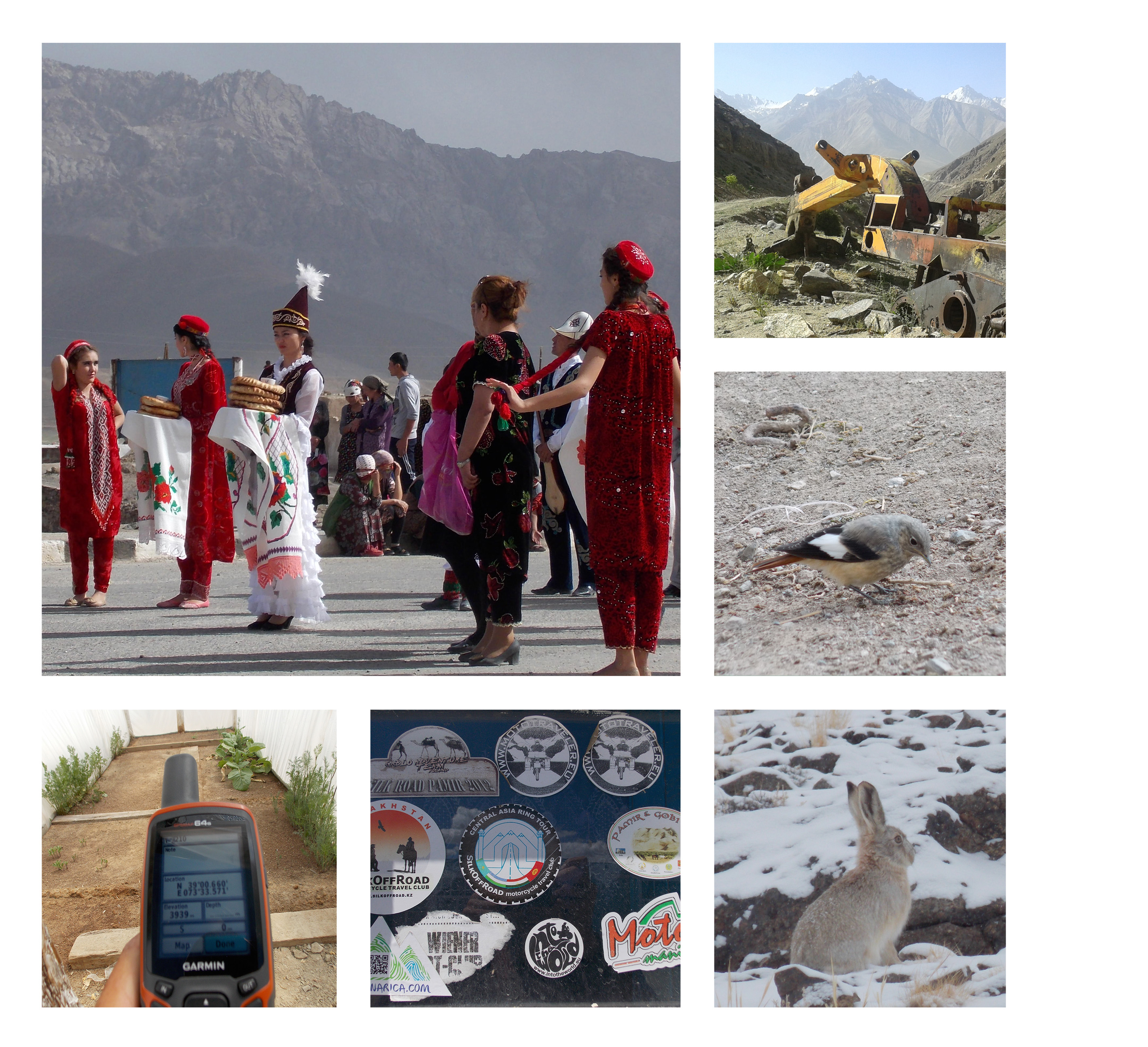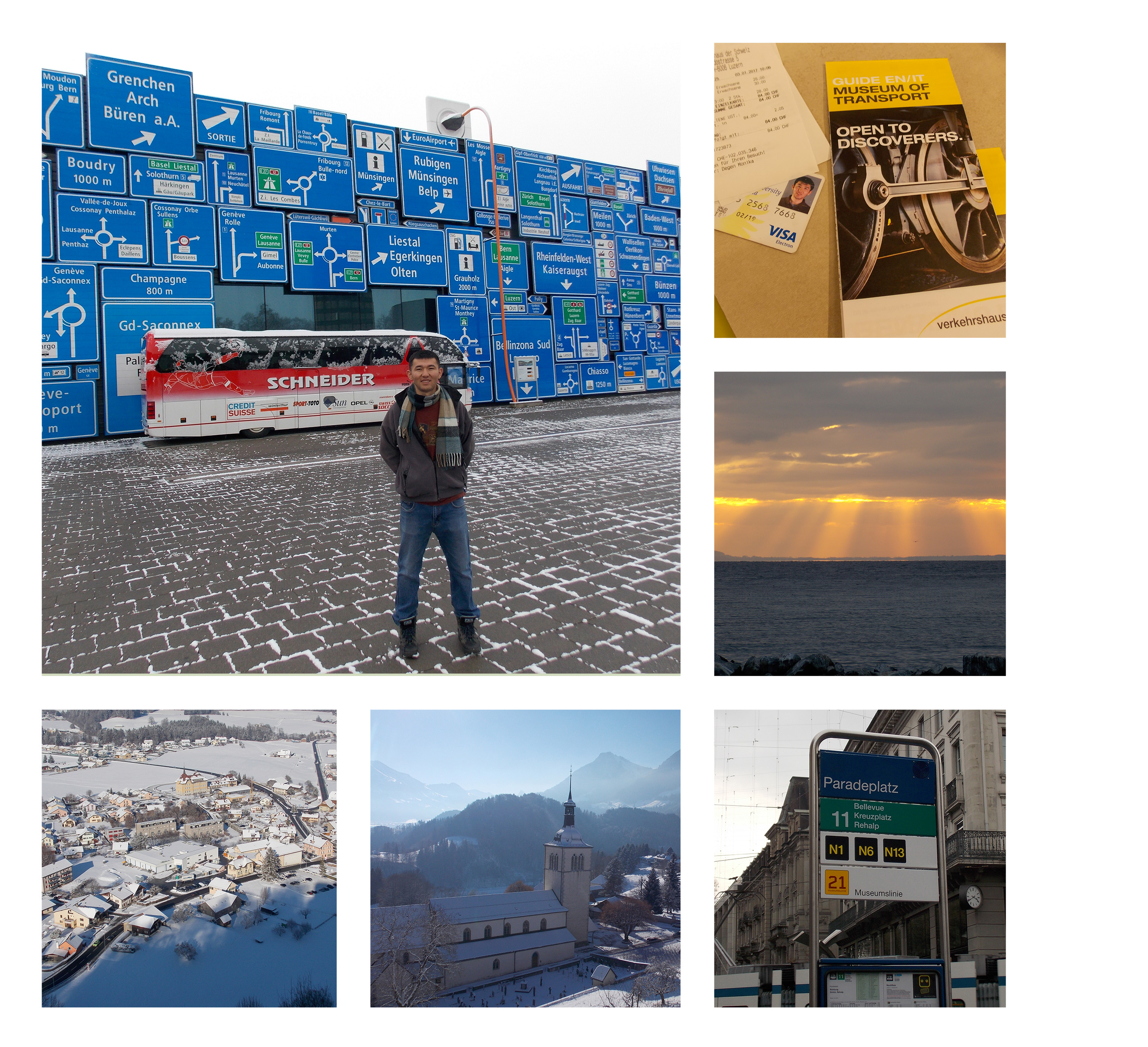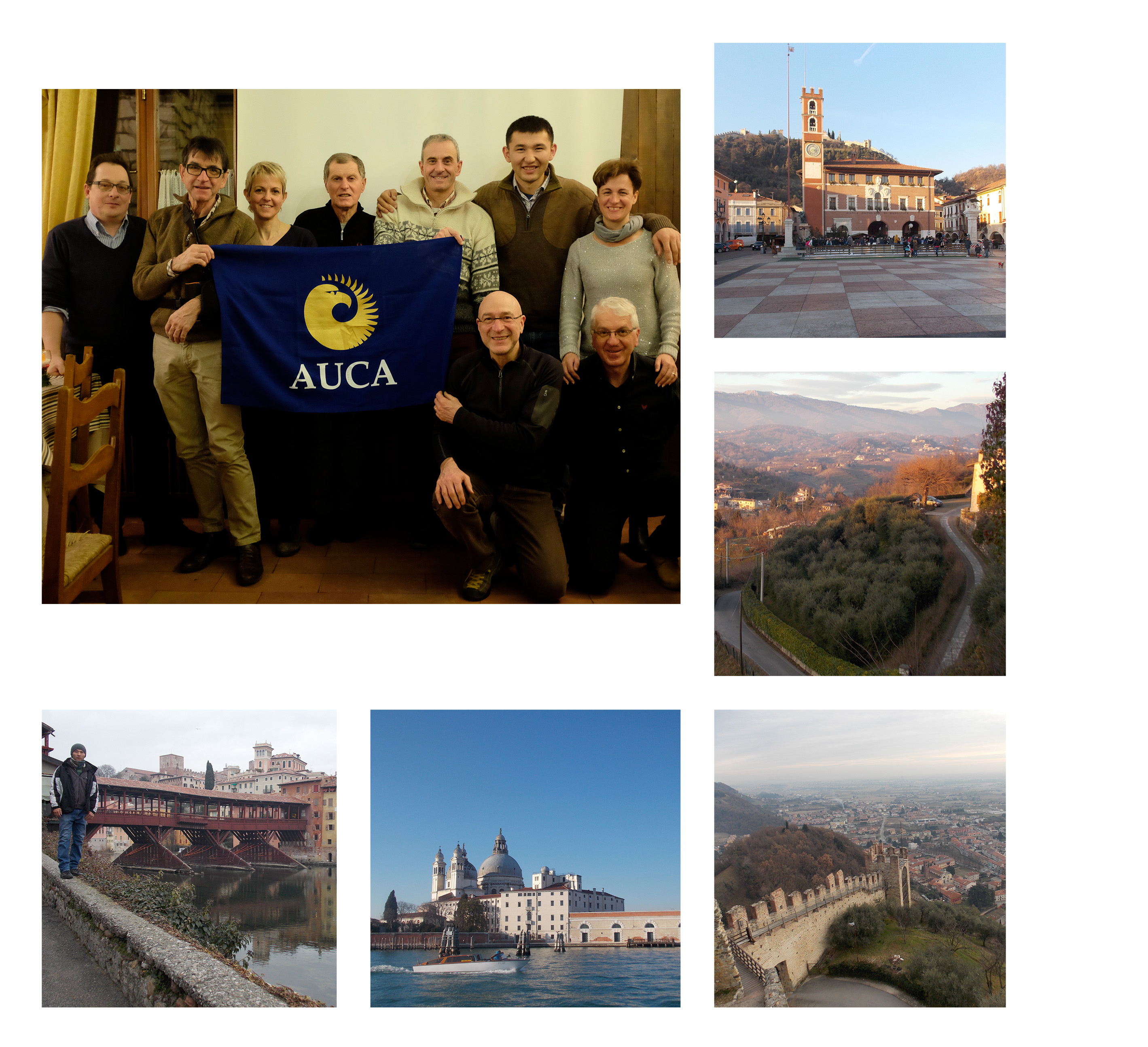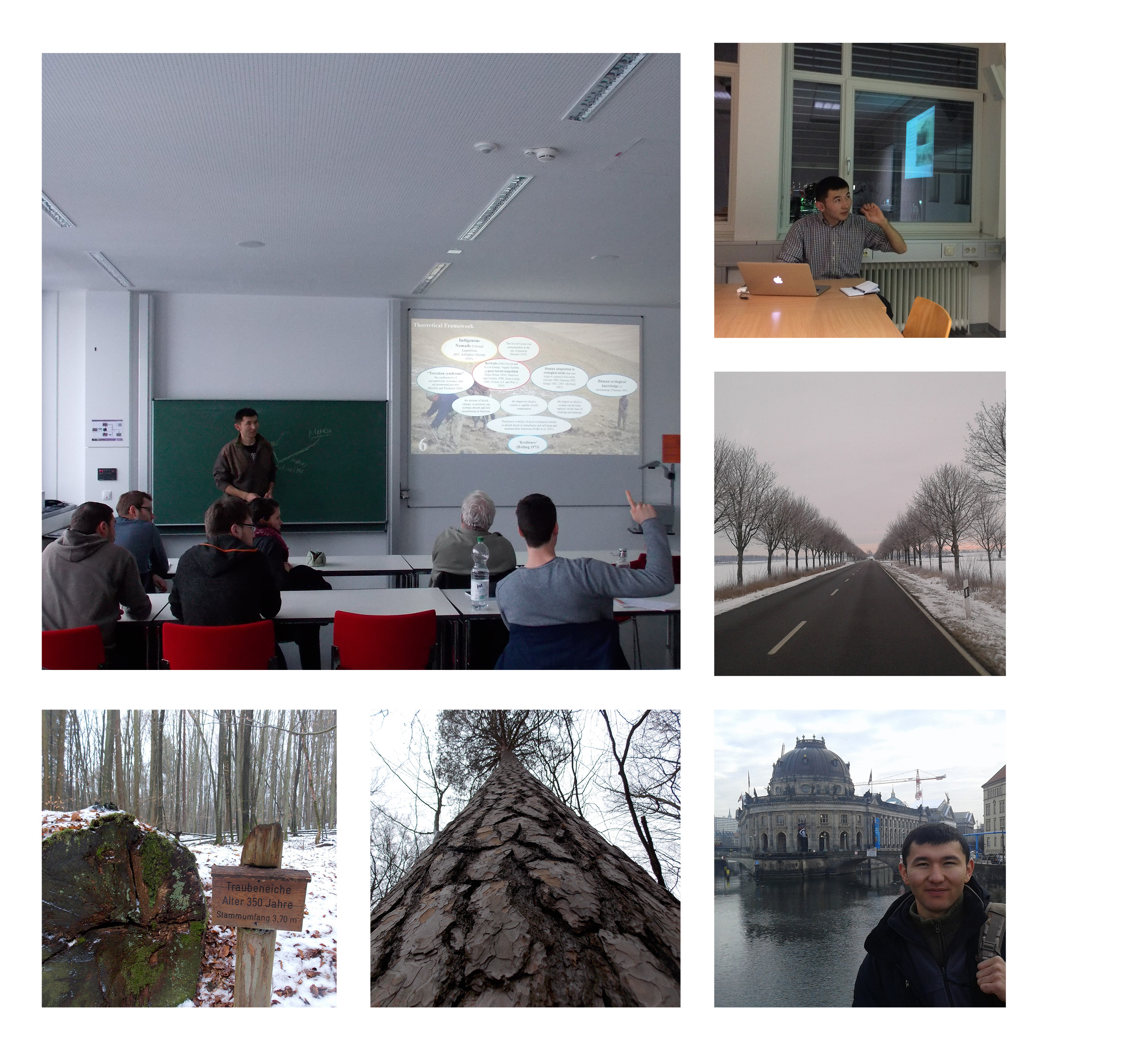A journey from Pamirs to Alps, Switzerland, Italy, and Germany
A journey from Pamirs to Alps, Switzerland, Italy, and Germany
February 6, 2017
Daler Kaziev, AUCA student, shared his experience in academic and cultural exchange trip to Europe, visiting Switzerland, Italy, and Germany:
"My name is Daler Kaziev. I grew up in the post-soviet town of Murgab. Mugrab is a large, mountainous, semi-desert, and multicultural district of the Gorno Badakhshan Autonomous Province (GBAO) in the Eastern part of Tajikistan. After graduating from a local Kyrgyz school, I became an alumnus of the Future Leaders Exchange Program (FLEX 2011-2012). Coming back from the USA, I applied to American University of Central Asia. Due to many environmental issues in my region, in particular, the use of shrubs as an energy resource in the Eastern Pamirs, I applied to the Liberal Arts and Sciences program, concentrating in ecology and anthropology. The newly open Environmental Management and Sustainable Development program introduced me to the world of environmental problems and solutions; the department of anthropology introduced me to a world of academia and equipped me with research skills. Combining ecology with anthropology, I am in the process of self-discovery, re-identifying my locale and experiencing the transition to sustainable development.

Photo 1. The District of Murgab. These images illustrate the co-existence of cultures, historical and current processes shaping the landscape, challenges in the agriculture of the Kara Kul area of Eastern Pamir (over 4000 m elevation), and the impact of global change for regional wildlife.
Recently, I made a short academic and cultural exchange trip to Europe, visiting Switzerland, Italy, and Germany. This was my first visit to Europe, and I would like to acknowledge my university, especially the SILC commission and the AUCA Open Doors Grant, for understanding and supporting my initiative. Overall, my visit was fruitful. I had a cultural exchange in Switzerland, enjoyed the friendship in Italy, and had a pre-defense presentation of my bachelor’s thesis at the Ludwig Maximillian University of Munich and at the University of Bayreuth in Germany. Moreover, I determined my further area of study in Germany.
I began my journey in Switzerland. As we know, Switzerland plays an essential role in developing the mountain regions of the world. What brought me to Switzerland was the Pamir Guides, a leading travel agency in the Pamir Mountains. I have worked with them every summer as a tour guide. It was founded by Pamir’s Bridges, a Swiss association for foreign aid and development. Thanks to the president of Pamir’s Bridges, in Switzerland I had one of the best cultural exchanges I have ever had. We visited Zurich, Luzern, Interlaken, Bern, Fribourg, Lausanne, Lake Geneva, and Vevey. I also visited Paradeplatz (one of the most expensive streets in the world), the cathedral of Das Grossmunster in Zurich, the Museum of Transport in Luzern, the Jungfrau Mountain in Interlaken on the way to Fribourg, the Nestle/Cailler factory, the castle of Gruyeres, the mountain Moléson in Swiss Prealps in the canton of Fribourg, the Olympic Museum in Lausanne etc. I loved it and enjoyed staying in Switzerland.

Photo 2. Switzerland. The Museum of Transport in Luzern, Lake Geneva, the castle of Gruyeres, and Paradeplatz in Zurich.
Knowing that I was in Europe, my Italian friends had invited me to Italy. Last year, I was their tour guide in the Pamirs and Tien Shan. We had a small Bassano del Grappa and Pamir event, where I presented on the landscape, history, and culture of the people from the Tien Shan and Pamir mountains. We built a good report between one another. Thanks to my friends in Bassano del Grappa, I visited the town and the fortress of Marostica and the city of Venice. What I really liked about Italy is the food, the friendly people, and the grappa.

Photo 3. Italy. Friendship group photo, Bassano del Grappa, the fortress of Marostica, the old bridge in Bassano, and the Santa Maria della Salute.
Over the past two years, I have been a part of in several scientific research projects (my own included) on the use of shrubs as an energy resource in the Eastern Pamirs. Learning Sustainable Pasture Management during my internship at CAMP Ala Too in Bishkek, Kyrgyzstan, I looked at the possibilities of sustainable pasture management and community contribution in my case study. Since this research is relevant to the challenges of mountain development and to ongoing research activity in the Pamirs, I was invited to present my work at Ludwig Maximillian University of Munich Department of Social and Cultural Anthropology and Global Change Ecology at the University of Bayreuth in Germany. I had interactive and engaging discussions with Master’s students and other professors not only from Germany but also from the University of Wyoming.
What motivates me academically is the interaction of humans with their biophysical environment. My work in the Pamirs is a simple example of human interaction with nature in a mountainous areas. Moreover, thanks to my friend in Germany, a conservationist, I was able to visit Muritz National Park, a UNESCO World Natural Heritage site in Germany. This is where I felt the importance of forests, wildlife, and landscape to humanity’s wellbeing. It is also a subject for long-term sustainability. After visiting several universities in Germany, I have decided to pursue a Master’s degree in wildlife management and human interaction with nature in Germany.
Photo 4. Germany. During the pre-defense at the Ludwig Maximillian University of Munich, University of Bayreuth in Germany. Enjoying my time in Muritz National Park, a UNESCO World Natural Heritage site, and Berlin, the capital.
Daniyar Karabaev,
Liberal Arts and Sciences program coordinator, AUCA
